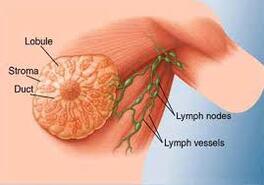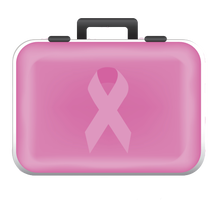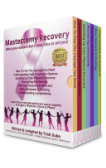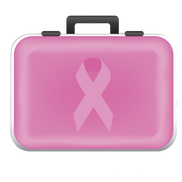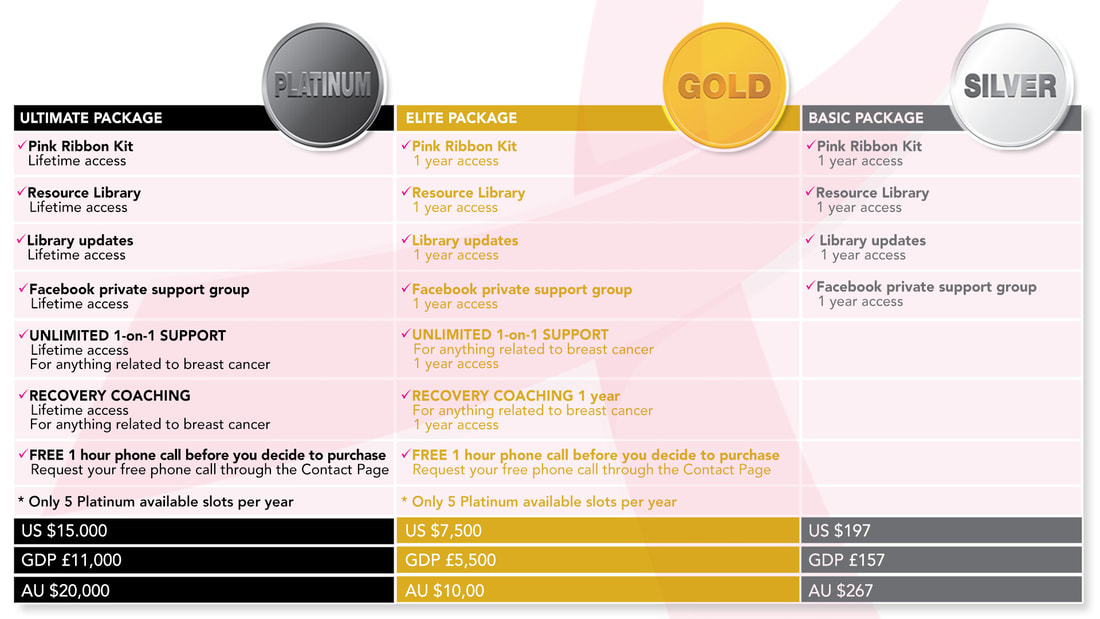Lymphedema associated with mastectomy & breast cancer surgery
Who is at risk?
This is the big question that patients are sometimes too scared to ask.
There are numerous studies about the risk factors for lymphedema.
The results range from 5% to 30% of patients after breast cancer surgery.
Research shows that the risk factor for lymphedema hugely depends on how many lymph nodes were removed from under your arm as well as radiation therapy.
The more axillary lymph nodes that are removed by surgery or radiation, the less lymph drainage you will have as the nodes do not grow back again. The more nodes they remove the chance of lymphedema is increased.
That’s why it’s important to understand your treatment plan from day one.
Your surgeon’s job is to remove the cancer cells. Once that is successfully completed, he or she feels his or her job is over and possibly not thinking about your long-term issues past the surgery.
Your family doctor may not want to worry you about lymphedema, especially if you are having chemotherapy and/or radiotherapy.
You and your loved ones are more than likely glad that the doctors have found the cancer and are giving you a life. But…there’s a but!
Ignorance is not bliss when it comes to lymphedema. Knowledge is power.
Recognising lymphedema early on and starting treatment as soon as possible is the wisest way to prevent complications from lymphedema and lower your risk of it becoming a long-term challenge.
Who is at risk?
This is the big question that patients are sometimes too scared to ask.
There are numerous studies about the risk factors for lymphedema.
The results range from 5% to 30% of patients after breast cancer surgery.
Research shows that the risk factor for lymphedema hugely depends on how many lymph nodes were removed from under your arm as well as radiation therapy.
The more axillary lymph nodes that are removed by surgery or radiation, the less lymph drainage you will have as the nodes do not grow back again. The more nodes they remove the chance of lymphedema is increased.
That’s why it’s important to understand your treatment plan from day one.
Your surgeon’s job is to remove the cancer cells. Once that is successfully completed, he or she feels his or her job is over and possibly not thinking about your long-term issues past the surgery.
Your family doctor may not want to worry you about lymphedema, especially if you are having chemotherapy and/or radiotherapy.
You and your loved ones are more than likely glad that the doctors have found the cancer and are giving you a life. But…there’s a but!
Ignorance is not bliss when it comes to lymphedema. Knowledge is power.
Recognising lymphedema early on and starting treatment as soon as possible is the wisest way to prevent complications from lymphedema and lower your risk of it becoming a long-term challenge.
Hi, I’m Trish Duke.
As a physical therapist I have been teaching patients and health professionals about lymphedema for decades, so I understand your concerns.
My e-book 'Understanding Lymphedma' has been on sale through Amazon Kindle for several years.
To save time and worry, you can use the comprehensive, multi-media information in our Resource Library covering common breast cancer challenges including lymphedema, (including the ebook on Amazon)
In the Resource Library you can learn about lymphedema from a surgeon, nurse and physiotherapist :
As a physical therapist I have been teaching patients and health professionals about lymphedema for decades, so I understand your concerns.
My e-book 'Understanding Lymphedma' has been on sale through Amazon Kindle for several years.
To save time and worry, you can use the comprehensive, multi-media information in our Resource Library covering common breast cancer challenges including lymphedema, (including the ebook on Amazon)
In the Resource Library you can learn about lymphedema from a surgeon, nurse and physiotherapist :
- Understanding what lymphedema is
- Ways to lower your risk
- How to recognise the signs and symptoms
- Know when to go to your doctor
- Treatment options
- How to travel safely
- Lymphedema pressure garments
- General advice for all mastectomy patients (even if you think you are a low risk)
Firstly… what is lymphedema?
Lymph is fluid that runs in-between structures in the body to keep them from sticking together ... muscles, organs etc.
Lymphedema is an abnormal build-up of lymph fluid that can't find a channel to drain into, such as under your armpit, in your neck, the groin.
The condition develops when lymph nodes (glands) are missing, faulty, damaged, irradiated, or surgically removed.
Post-surgical lymphedema typically affects the armpit and arm next to the mastectomy site.
Swelling of your arm can occur soon after your surgery, but it usually goes away in a few days or up to a month.
There is no need to be concerned with this swelling. It’s just your body dealing with the trauma.
One of our videos teaches you how to massage yourself to get the flow moving, especially if it causes a pouch above the surgical scar.
True lymphedema may appear four to six weeks post-surgery. This is when you need good information and management to minimize your chance of it becoming chronic.
At 18 to 24 months post-surgery, your arm may swell so slowly without any discomfort that you don’t notice until you try on a bracelet or tight sleeve that was looser before your breast cancer appeared.
If you detect an increase in the size of your arm or experience chronic aching, do not ignore it.
It’s much easier to treat at an early stage.
Contact your doctor right away, (assuming he/she has a good understanding of treatment options)... or ask to be referred to a lymphedema clinic.
KEY POINT: Education and prompt treatment can help to get lymphedema under control
There are several signs of lymphedema and it’s vital that you know what they are, as well as a good understanding of your options and self-care.
The Pink Ribbon contains the Resource Library with multi-media information from a surgeon, a nurse, and a physiotherapist teaching you
how to minimize your chance of getting lymphedema as well as self-help and how to manage it.
KEY POINT: If you are unfortunate and develop lymphedema it should NOT take over your life once you have mastered the self-care and know when to ask for help.
Lymph is fluid that runs in-between structures in the body to keep them from sticking together ... muscles, organs etc.
Lymphedema is an abnormal build-up of lymph fluid that can't find a channel to drain into, such as under your armpit, in your neck, the groin.
The condition develops when lymph nodes (glands) are missing, faulty, damaged, irradiated, or surgically removed.
Post-surgical lymphedema typically affects the armpit and arm next to the mastectomy site.
Swelling of your arm can occur soon after your surgery, but it usually goes away in a few days or up to a month.
There is no need to be concerned with this swelling. It’s just your body dealing with the trauma.
One of our videos teaches you how to massage yourself to get the flow moving, especially if it causes a pouch above the surgical scar.
True lymphedema may appear four to six weeks post-surgery. This is when you need good information and management to minimize your chance of it becoming chronic.
At 18 to 24 months post-surgery, your arm may swell so slowly without any discomfort that you don’t notice until you try on a bracelet or tight sleeve that was looser before your breast cancer appeared.
If you detect an increase in the size of your arm or experience chronic aching, do not ignore it.
It’s much easier to treat at an early stage.
Contact your doctor right away, (assuming he/she has a good understanding of treatment options)... or ask to be referred to a lymphedema clinic.
KEY POINT: Education and prompt treatment can help to get lymphedema under control
There are several signs of lymphedema and it’s vital that you know what they are, as well as a good understanding of your options and self-care.
The Pink Ribbon contains the Resource Library with multi-media information from a surgeon, a nurse, and a physiotherapist teaching you
how to minimize your chance of getting lymphedema as well as self-help and how to manage it.
KEY POINT: If you are unfortunate and develop lymphedema it should NOT take over your life once you have mastered the self-care and know when to ask for help.
The Pink Ribbon Kit
includes the Resource Library, a private Facebook support group and an option for 1-on-1 support
Specific tools for lymphedema in our Resource Library...
Lymphedema Resource #1
“Understanding Lymphedema”
(One of the 7 part series of best-selling e-Books on Amazon
called ‘Mastectomy Recovery” by Trish Duke)
Lymphedema Resource #1
“Understanding Lymphedema”
(One of the 7 part series of best-selling e-Books on Amazon
called ‘Mastectomy Recovery” by Trish Duke)
- What is lymphedema?
- Symptoms of lymphedema
- Who is at risk?
- How do I lower my risk?
- Important lifestyle guidelines
- Treatment options for lymphedema
- Wisdom from a breast cancer specialist nurse
- Advice from an international breast cancer surgeon
Lymphedema Resource # 2
An international Breast Cancer Surgeon gives five exclusive radio interviews:
Interview Resource # 3
Lymphedema Resource # 4
“How a Mastectomy Affects a Woman and Her World”
Four exclusive radio Interviews with a breast cancer nurse
Interview Recource # 5
An international Breast Cancer Surgeon gives five exclusive radio interviews:
Interview Resource # 3
- Why the surgeon operates under your arm
- Pathology tests on axillary lymph notes
- Lymph gland removal and test options
- Subsequent risks of reduced shoulder movement/function
- Who is at risk of lymphedema?
- False negative test reports
Lymphedema Resource # 4
“How a Mastectomy Affects a Woman and Her World”
Four exclusive radio Interviews with a breast cancer nurse
Interview Recource # 5
- 1 in 4 women are at risk of lymphedema post-op
- What is lymphedema?
- Dangers of airline travel to lymphedema
- Pros and cons of breast reconstruction surgery
- Life will never be the same
- With the right information and support there can be a high quality and productive life after breast cancer!
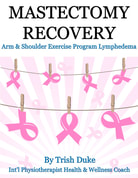
Lymphedema Resource # 6
Follow Jan in the "Mastectomy Recovery" video after a mastectomy/reconstruction :
*The easy-to-follow exercise program that has been used internationally for decades promoting
recovery of the shoulder and arm adjacent to your surgery.
*How to avoid or minimize Lymphedema.
*A self-help program if arm swelling develops.
For anyone facing breast cancer surgery this video is a timeless, valuable resource as many patients are sent home after breast cancer surgery
without a clear plan of the rehab exercises, activities allowed, lymphedema prevention, body image adjustment or emotional support.
Be inspired as you watch Jan speedily recovering from mastectomy and reconstruction surgery for breast cancer.
Follow her physical and emotional progress using this safe and trusted home exercise plan from her first day home post-op to playing golf a few weeks later….bald as an egg and still having chemotherapy.
You can see a short video of her on the golf course, talking about the program by clicking here
Lymphedema Resource # 7
“50 Ways to Feel Better” video
The key parts of this informative and practical video on lymphedema are:
Full contents of the video:
“50 Ways to Feel Better” video
The key parts of this informative and practical video on lymphedema are:
- Coping with swollen limbs
- Lymphedema pressure garments
Full contents of the video:
- D.E.E.P. Program. How to find your ‘get up and go’ when it has ‘got up and gone’
- How to gain more energy
- Stress management
- Easy relaxation to music and Australian scenery
- Making the most of every day
- How to give a relaxing massage
- Coping with swollen limbs
- Helpful equipment to buy or hire from your Pharmacy store
- Lymphedema pressure garment
The 'Pink Ribbon Kit' aims to help YOU to tackle the unexpected challenges that most patients face throughout their breast cancer journey ... and for months after treatments are completed.
The Kit is available to you as a lifetime resource and designed to assist you from diagnosis to the point when breast cancer is no longer an issue in your life.
The ‘long shadow’ after breast cancer can include lymphedema, body image and sexual issues, mild depression, changed relationships...
The Pink Ribbon Kit includes:
#1 A comprehensive, multi-media Resource Library with practical tips and solutions to speed up your recovery … physically, emotionally and sexually.
#2 A private Facebook group focused on being supportive, helpful and positive!
Make new friends in the FB group who 'get' where you are at this point in your life.
#3 Prayer support is offered.
#4 An option to invest in one-to-one support for yourself.
The Resource Library has links to the best international breast cancer websites and unique multi-media resources … saving you time (and stress) instead of frantically searching on the internet for answers to questions you were not expecting to ask!
Learn from international health professionals and breast cancer survivors using the compendium of videos, radio interviews,
e-books, audio, research articles and TV programs etc.
Coupled with the FB support group, you will have solutions, tools and life skills, 24/7 to dip into before or during a challenge.
You (the patient) can invite a loved one or personal important person in your life into the FB group.
They often need as much support as yourself.
Contributors to the Pink Ribbon Resource Library:
Breast cancer surgeon
Family Doctors
Breast Cancer Nurse
Senior breast cancer
Physiotherapist
Breast cancer survivors and their loved ones
Best-selling authors on Amazon.com
Award-winning documentary makerOngoing new contributors and resources
You are very welcome to join our international mastectomy recovery community!
Click here to check out the contents of the Resource Library
Click here to obtain your lifetime Pink Ribbon Kit
Ladies who are single or have a partner who feels unable to support them throughout their treatment and recovery can choose the option of additional ‘one-on-one ' support.
Enlightened health professionals know that you benefit from ongoing encouragement and information for at least the same time period as your treatments last.
That means if your treatments lasted for one year, then you usually still need support and information for a year afterwards.
Helping you to make the best recovery possible physically, emotionally and sexually.
When your treatments are completed, the medical team may tell you to “Get on with your life now” ... but some ladies are left feeling abandoned, bewildered and possibly traumatised afterwards.
At this point, some cancer support groups wish you luck and expect you to make room for new patients.
The Mastectomy Recovery Centre is still ‘there for you’ until you no longer need us …although you might like to visit
the FB support group from time to time to encourage ladies travelling on their breast cancer journey.
With one-on-one support you can expect:
- I will listen to you without judgement
- Confidentiality
- I will be there for you throughout the entire breast cancer journey
- Motivate and encourage you to make the best recovery possible
- Support for those who love you
- Celebrate the victories with you
- Help you to find the answers you need
- I will be open and honest with you
- If you would like prayer, I can pray with and for you
If you choose the option of ‘one-on-one’, Trish Duke is your key support person and recovery coach who can communicate with you by email, WhatsApp, Skype, phone, Messenger etc.
Trish has been a qualified cancer support group facilitator for many years and treated breast cancer patients over four decades as a physiotherapist. (About)
This option has limited places to ensure adequate care and time for each person.
Applicants for 'one-on-one' support are accepted only after a chat with Trish to make sure that it's a right fit for you.
Contact Trish through the contact form to request a phone call to discuss the opportunity to take one of the five one-on-one slots available per year.
Trish has been a qualified cancer support group facilitator for many years and treated breast cancer patients over four decades as a physiotherapist. (About)
This option has limited places to ensure adequate care and time for each person.
Applicants for 'one-on-one' support are accepted only after a chat with Trish to make sure that it's a right fit for you.
Contact Trish through the contact form to request a phone call to discuss the opportunity to take one of the five one-on-one slots available per year.
